XIV International Conference on Higher Education Took Place at HSE University
This year’s conference topic was ‘Student Experience at a Modern University: from an Enrollee to a Graduate’. Over the three days, researchers from Russia and other countries discussed the individual and institutional factors that determine students' educational experience, the impact of this experience on educational performance, and its influence on labour market success. The conference took place from October 25–27 and featured over 90 presentations.
In her opening speech, Vice Rector Elena Odoevskaya explained why student experience was chosen as the key topic of this year’s event.
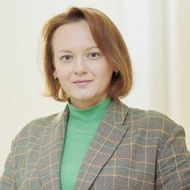
Elena Odoevskaya
‘Students are the main reason why a university erects walls, creates programmes, and establishes partnerships with industries. They are the ones who will develop our country and others—among the conference participants are representatives from China, the UAE, Sri Lanka, and other countries. Therefore, it is crucial to understand the student experience within a university, their interactions with key stakeholders, and their decision-making process when selecting a university and future career path.’
Evgeniy Terentev, Director of the HSE Institute of Education, described the conference as a friends’ reunion. Fourteen years ago, when the conference was first founded, it was a small-scale affair that none would have predicted would eventually span three days and receive 200 applications.
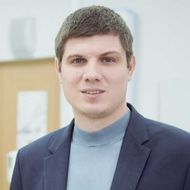
Evgeniy Terentev
‘One of the primary objectives of the conference over the years has been to foster a research-oriented atmosphere for addressing higher education issues. While there are numerous platforms available for discussing political aspects of higher education development, there is a dearth of opportunities for discussions of evidence-based research. I propose that we take it as a rule to conduct evidence-driven conversations and substantiate our statements and findings with relevant data during the course of these three days.’
Consortia
The first roundtable, which took place on October 25, was dedicated to scientific and educational consortia formed by universities and businesses, and the evaluation of the effectiveness of their interactions.
Elena Odoevskaya moderated the event. She talked about different approaches to the concept of a consortium. For example, in the Priority 2030 programme, it is described as ‘a temporary voluntary association of universities with other organisations to coordinate activities and consolidate resources when implementing breakthrough projects that ensure the scientific and technological development of the country.’
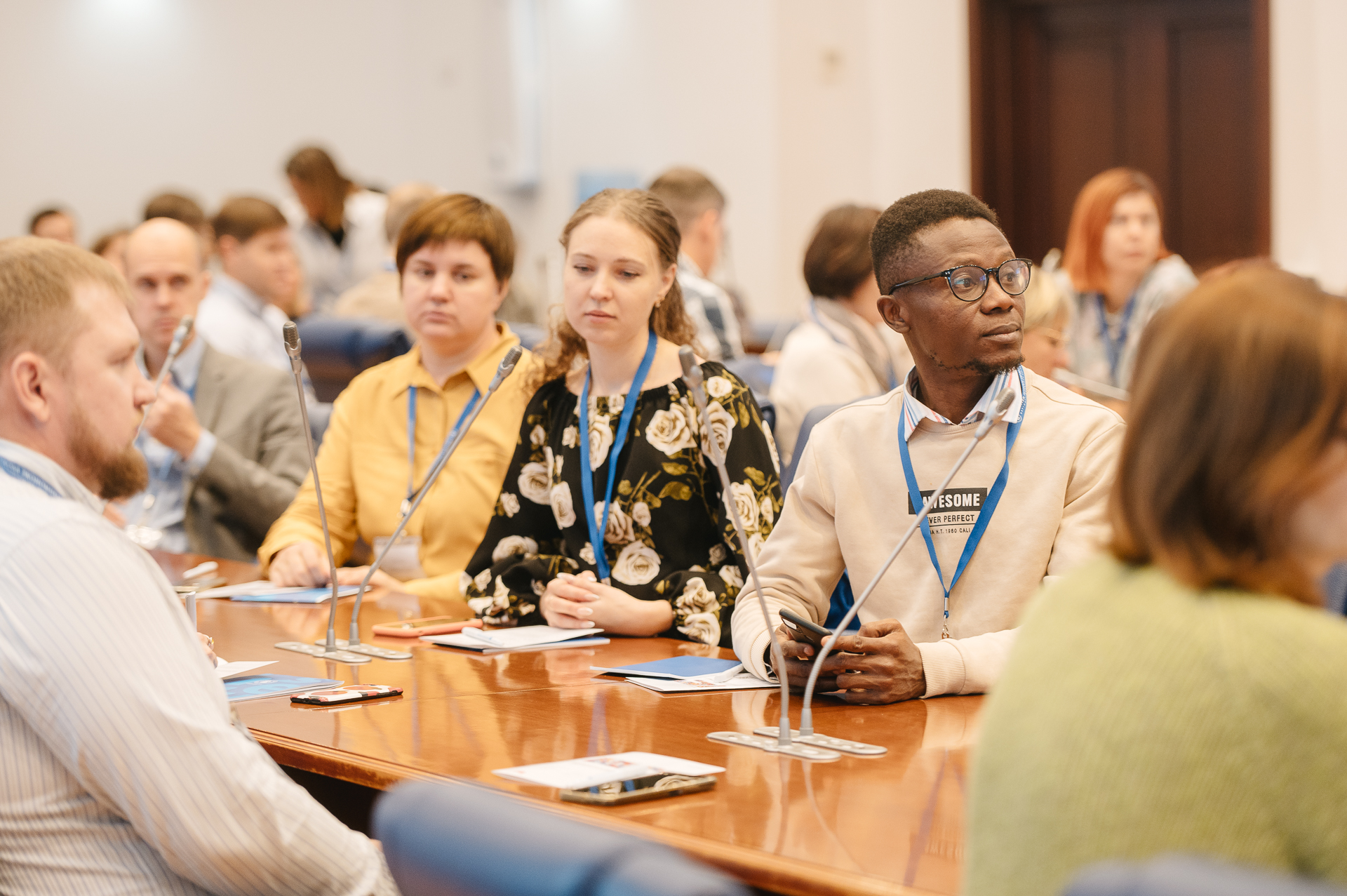
Tatiana Zhdanova, Deputy Director at Sociocentre, told the audience that the Priority 2030 programme involves 132 universities, which have created 390 consortia with over 3,000 partners. These consortia are aimed at solving complex issues for the benefit of regions, industries, and societies, while universities get involved in these activities and attract young people to them.
Anna Stepanova, Deputy Vice President for Educational Projects at VK, spoke about cooperation with universities from the perspective of businesses: for them, the important aspects are the social part of the ESG agenda, interaction with the consumers of their products, and headhunting students. However, she believes that there is still a lack of good practices and partnerships based on mutual interest and benefit, rather than being a burden to businesses or universities.
HSE Vice Rector Irina Martusevich spoke about HSE University’s experience of employer relations and facilitating access to businesses’ young target audiences.

Irina Martusevich
HSE Vice Rector Irina Martusevich spoke about HSE University’s experience of employer relations and facilitating access to businesses’ young target audiences. ‘We give students and businesses an opportunity to shorten the initial introduction period thanks to deep integration in our projects and extracurricular activities,’ she said. Over 65% of HSE students gain working experience during their studies, which helps them make better-informed employment decisions upon graduation.
Altynai Adzhikova, Vice Rector at MTUCI, spoke about her university’s experience of industry relations, while Roman Laas, Director of the Educational Product Centre at Tomsk Polytechnic University, told the audience about ‘Big Tomsk University’, a consortium of universities and academic institutes located in Tomsk and centred around ‘on par’ interaction. The roundtable discussion finished with a discussion of the impact of consortia on student experience.
Campuses
The next conference event was a panel discussion on ‘The Possibility and Reality of University Campus Projects.’ Evgeny Terentev, who moderated the discussion, said that it follows on from the roundtable on consortia, since various institutions take part in the evolution of new campuses. In Russia, several projects are currently underway in which a single campus is created by the city for several higher education institutions. ‘The idea behind a campus is to create a comfortable environment for achieving high educational and research performance, and this requires new solutions and business models,’ he added.
Taisiya Pogodayeva, Director of BIM Campus, a company that implements the Big Ivanovo Manufacture (BIM) project as part of a concession agreement, said that the topic of campuses is much more complex, since in consortia ‘there’s no need to share properties.’ She believes that the creation of a campus gives universities a ‘chance to reinvent themselves,’ while for cities, it is a tool of spatial development.
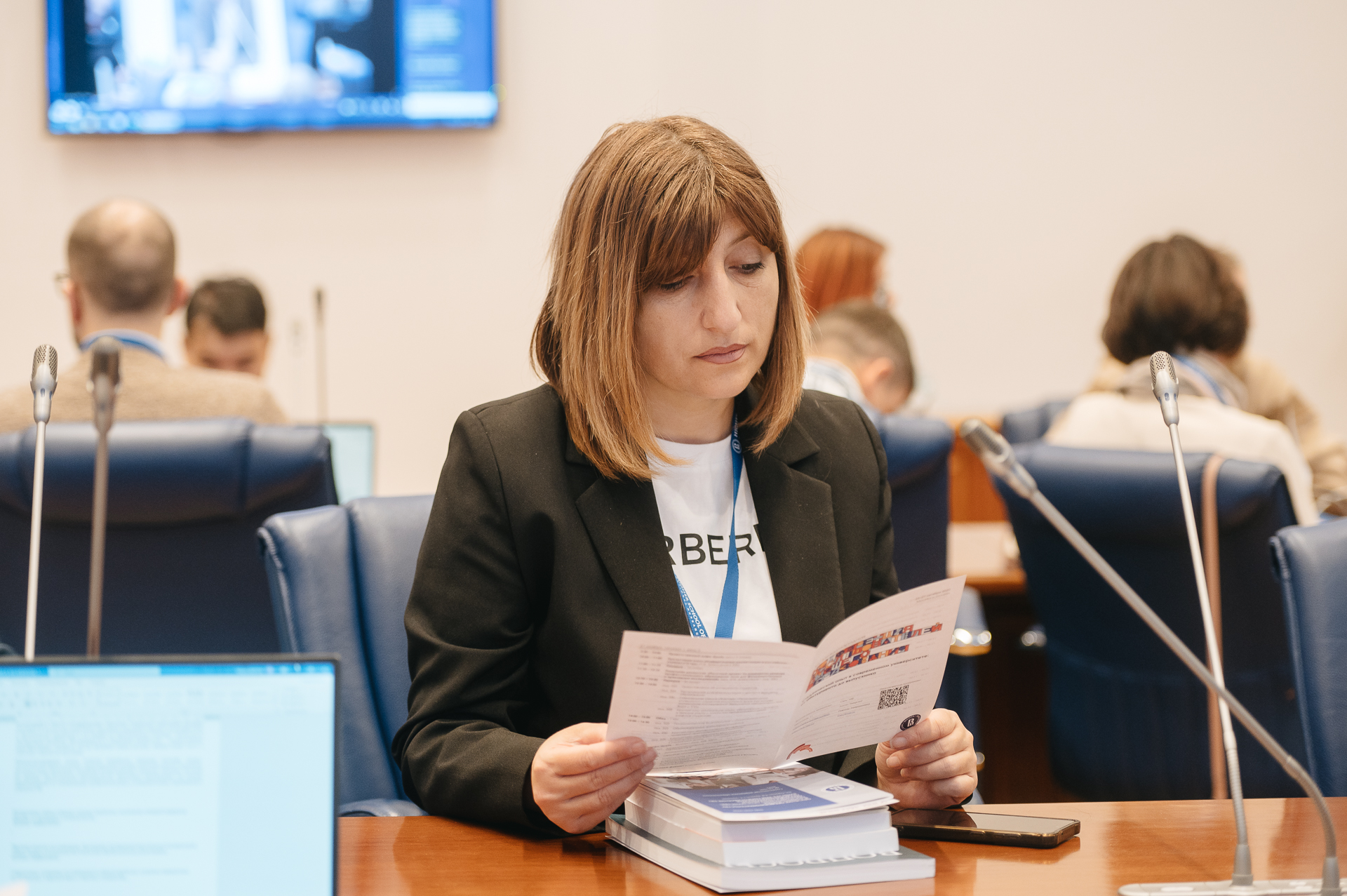
Conference participants from various regions of Russia spoke about creating campuses in their respective cities: Sergey Kotsukon, Deputy Minister of Digital and Technological Development of Sakhalin Oblast; Alexandra Lebedeva, Deputy Prime Minister of Kamchatka Krai; Vitaly Litke, Deputy Minister of Education and Science of Chelyabinsk Oblast; Yury Marfing, Acting Rector of Pacific University in Khabarovsk.
In Sakhalin, creating a campus is not seen as at a profit-making project. ‘For us, it is an opportunity to develop the region’s infrastructure and to modernise our university,’ explained the region’s representative.
For Petropavlovsk-Kamchatsky and Ivanovo, campuses are one of the key objects in the cities’ master plans, given their central location.
Before the campus project, universities in Chelyabinsk had not interacted with each other or with regional authorities. The project is also joined by industry partners who offer venue rental, collaboration ideas, and more.
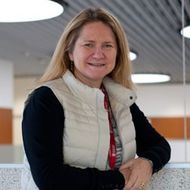
Magdalena Gaete
Magdalena Gaete, Senior Research Fellow at the Laboratory for Reputation Management in Education at HSE University-St Petersburg, spoke about global trends in campus development. There have been no cases in Europe or the USA when a decision was made to first create one campus for several universities, and only after that did the universities start cooperating. ‘A unique experiment is underway in Russia, and we will follow its progress,’ Evgeny Terentev concluded.
See also:
HSE Researchers Develop Python Library for Analysing Eye Movements
A research team at HSE University has developed EyeFeatures, a Python library for analysing and modelling eye movement data. This tool is designed to simplify the work of scientists and developers by enabling them to efficiently process complex data and create predictive models.
New Science: How Early-Career Researchers Reach New Heights
In the context of increasing global competition, countries arestriving to ensure technological sovereignty. Those who can ensure economic development and concentrate intangible assets and human capital are emerging as leaders. The growing demand for qualified staff leads to an increase in the role of universities and the demand for early-career scientists. The challenges and opportunities for prospective specialists in the scientific community were discussed at the ‘StratPro Platform’ strategic session at HSE University.
Neuroscientists Reveal Anna Karenina Principle in Brain's Response to Persuasion
A team of researchers at HSE University investigated the neural mechanisms involved in how the brain processes persuasive messages. Using functional MRI, the researchers recorded how the participants' brains reacted to expert arguments about the harmful health effects of sugar consumption. The findings revealed that all unpersuaded individuals' brains responded to the messages in a similar manner, whereas each persuaded individual produced a unique neural response. This suggests that successful persuasive messages influence opinions in a highly individual manner, appearing to find a unique key to each person's brain. The study findings have been published in PNAS.
Five Strategies for the Future: Key Achievements of HSE Strategic Projects in 2024
During the past year, scientists at HSE University have worked on five strategic projects aimed at advancing key areas essential to the development of modern individuals and society. Each of these projects is unique, yet they share common goals: creating innovative product solutions, generating fresh ideas for the economy, social sector, science, and education, and contributing to the university's research potential.
Humans, Bots, and Digital Twins: Year-End Results of the Strategic Project 'Human Brain Resilience'
HSE University hosted a joint research seminar to review the 2024 results of the Strategic Project 'Human Brain Resilience: Neurocognitive Technologies for Adaptation, Learning, Development and Rehabilitation in a Changing Environment.' The event showcased the progress and outcomes of fundamental and applied projects focused on developing technologies for neurodiagnostics, neuroadaptation, and neurorehabilitation—collectively known as 3N technologies. The objective is to develop tools that can help prevent neurogenic and psychiatric disorders or alleviate their consequences.
HSE and Integration Education Centre to Develop New Programmes for Agrobiotech Advancement
HSE University and ANO Integration plan to jointly develop projects aimed at creating new approaches to education and advancing innovative agrobiotechnologies. The parties signed the corresponding agreement at the XI Congress ‘Innovative Practice: Science Plus Business.’
Virtual Mozart, Venture Capital Bot, and Educational Video Generation: How AI is Used at HSE University
In mid-November, HSE University hosted a meetup where faculty, researchers, and administrators presented their projects and shared experiences with using AI technologies in education and research. The meeting was part of the continuing professional development programme 'Artificial Intelligence in Education and Research.'
HSE Scientists Propose Using Heart Rate Analysis to Diagnose Anxiety and Depression
A group of scientists at HSE University have discovered how anxiety and depression can be diagnosed by analysing heart rate. It turns out that under mental stress, the heart rate of individuals with a predisposition to mental health disorders differs from that of healthy individuals, especially when performing more complex tasks. These changes in cardiovascular parameters can even be detected using a pulse oximeter or a smartwatch. The study findings have been published in Frontiers in Psychiatry.
Narcissistic and Workaholic Leaders Guide Young Firms to Success
Scientists at HSE University—St. Petersburg studied how the founder's personal characteristics impact a young firm's performance. It turns out that a narcissist and workaholic who also fosters innovation will effectively grow their company. The paper has been published in IEEE Transactions on Engineering Management.
Exploring Research Prospects and Collaboration Opportunities: Discussion of Strategic Projects Held at HSE University
On June 26 and 27, HSE University at Pokrovka hosted a discussion of potential partnerships between the university's research teams and strategic projects under the Priority 2030 programme. During the two-day session, the heads of strategic projects presented the main areas of their ongoing research, highlighted some of the key results achieved, and shared their vision for involving new researchers in the projects.


